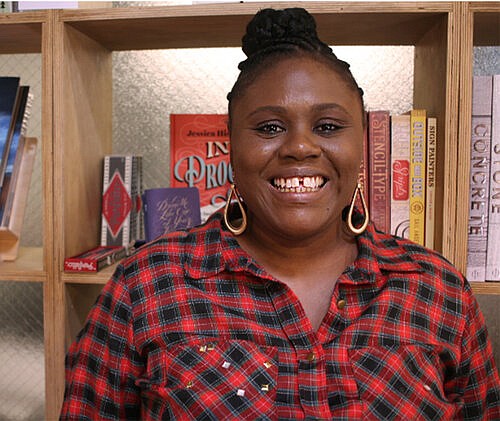Economic insecurity is a daily reality for thousands of older adults in Maryland living on fixed incomes and struggling to meet their obligations each month, according to The Maryland Consumer Rights Coalition (MCRC), a statewide coalition of individuals and organizations that advances economic rights and financial inclusion through research, education, advocacy, direct service, and community organizing.
Many of these older adults are eligible for assistance programs that would help them to age in place. Among the many helpful programs offered by MCRC is the Securing Older Adult Resources (SOAR) initiative where individuals provide financial coaching and counseling to meet the specific needs of seniors, including helping them to avoid financial hardship and access available benefits.
Individuals like Jamila Blake provide financial counseling and coaching to help improve the economic well being of older adults, including finding solutions to fill the gaps in the services offered to them. She also helps individuals access essential tax credits that could mean the difference between foreclosure and eviction.
Few are taking advantage of existing benefits, such as the Maryland Homeowners’ Property Tax Credit and Maryland Renters’ Tax Credit. Older adults often need ongoing financial guidance and support, beyond what is being offered by other service providers, according to Blake.
“I enjoy working with the older population and coordinating services for them to keep them safe in their homes,” said Blake, the mother of two. “Through serving older adults I have learned so much about what their needs are and how aging in place looks so different for individuals when income, gender, race, ethnicity, regional and disability are factored in.”
Blake was born in Cameroon and raised in Baltimore. She holds a bachelor’s degree in Sociology/Human Services from Simmons College in Boston and an MSW in Social Work from the University of Pittsburgh. Blake has worked at MCRC since last year.
In addressing the needs of seniors as a financial counselor in the SOAR program, Blake provides screening and application assistance for the RTC and Homeowners’ Property Tax Credit (HOTC) to older adults.
“I am passionate about older adults, and I believe in MCRC’s mission— advocating and empowering consumers,” Blake said.
To date, it is estimated that the SOAR program of the MCRC has reached more than 35,000 individuals through outreach.
“Counselors have directly assisted more than 600 people through application assistance and consumer education training,” Blake said. “The MCRC wants low-income Baltimore homeowners and renters to ‘Take the Credit.’
“These are ‘forgotten’ tax credits that thousands of folks can access but do not. They can put up to $1,000 back into your pockets every year. These yearly tax credits can be the difference between foreclosure or eviction, so don’t wait to take the credit.”
Renters must be over 60 to qualify and have a gross annual income of under $60,000. People under age 60 may be eligible but they must either be permanently disabled or have dependents under 18 living with them.
Homeowners must also be over 60 and must live in the home they own. A homeowners’ net worth must be less than $200,000, and their gross combined household income should be less than $60,000 to qualify.
To find out if you are eligible for the Maryland Homeowners’ Property Tax Credit or Maryland Renter’s Tax Credit, call the Maryland Tax Credit Hotline at 443-961-6220 or visit: www.MarylandTaxCredit.com for help to fill out the forms. The deadline to apply is August 31, 2020. Everyone is encouraged to get immediate help to be able to take advantage of the yearly tax credits.
